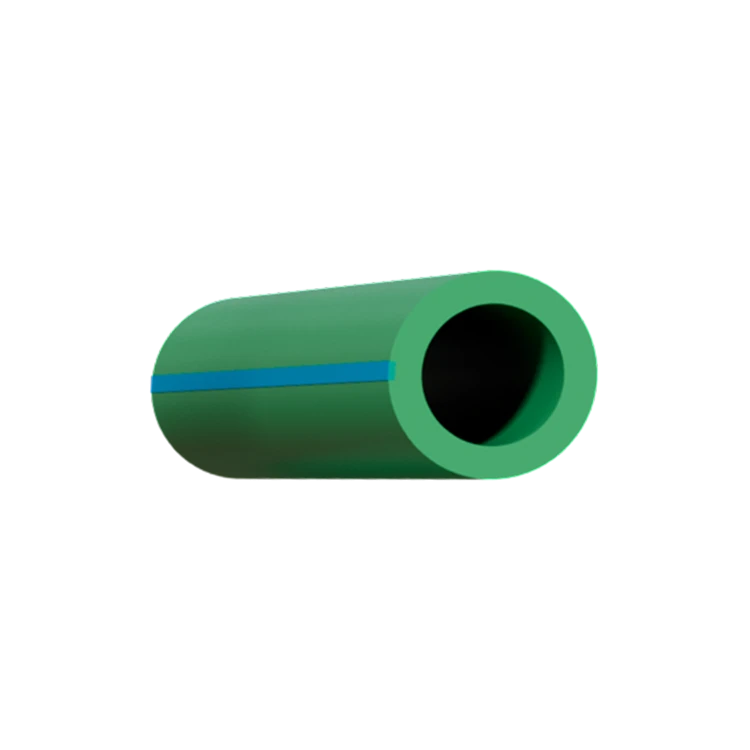1. Introduction
For chemical processing professionals, selecting corrosion-resistant materials is critical for safe, efficient operations. This guide explores whether PPR pipes are suitable for chemical processing, backed by technical data, certifications, and real-world applications.
2. Why PPR Pipes Are Ideal for Chemical Processing
2.1 Exceptional Chemical Resistance
- pH Stability: Handles extreme conditions from 1 (strong acid) to 14 (strong alkali).
- Solvent Resistance: Resists alcohols, esters, and ketones.
- Oxidation Protection: Stabilizers prevent degradation from free radicals.
2.2 High-Temperature Performance
- Continuous Use: 95°C (EN 12201 certified).
- Short-Term Peaks: Withstands up to 110°C.
2.3 Durability & Cost Efficiency
- Lifespan: 50+ years with proper maintenance.
- Cost: 40% cheaper than stainless steel alternatives.
3. Chemical Compatibility Ratings
3.1 Acids
| Chemical | Concentration | Compatibilité | Test Standard |
|---|---|---|---|
| Hydrochloric | Up to 30% | Excellent | ASTM D543 |
| Sulfuric | Up to 50% | Good | ISO 175 |
| Nitric | Up to 20% | Fair | EN 12201 |
3.2 Alkalis
- Sodium hydroxide (50%): Excellent resistance.
- Potassium hydroxide (40%): Good performance.
3.3 Chlorinated Compounds
- Chlorine gas (Cl₂): Use PPR-lined steel pipes.
- Chloramine (NH₂Cl): Long-term resistance verified.
4. Industrial Applications
4.1 Chemical Storage & Transport
- Sulfuric acid tanks: DN110 PN25 PPR pipes.
- Chlorine gas: PPR-lined steel systems.
4.2 Water Treatment
- Chloramine disinfection: 15-year lifespan in Australian plants.
- Alum coagulants: No leaching in NSF 61 tests.
4.3 Pharmaceutical Manufacturing
- Ethanol-based cleaning: 10-year service life.
- Sodium hypochlorite (20%): Successfully used in production lines.

5. Key Considerations for Chemical Processing
5.1 Certification Compliance
- ISO 10350: International standard for chemical resistance.
- EN 12201: Material stability for 50 years.
- NSF/ANSI 61: Drinking water safety (for potable systems).
5.2 Custom Solutions
- Lined Pipes: PPR-lined steel for aggressive chemicals.
- Special Coatings: UV-resistant or anti-scale formulations.
5.3 Installation Best Practices
- Welding: Follow ISO 21307 for seamless joints.
- Pressure Testing: 1.5x working pressure for 2 hours.
6. Yifan Pipeline’s Chemical-Resistant Solutions
As a leading manufacturer:
- Certifications: ISO 10350, EN 12201, NSF 61.
- Customization: 3D-printed prototypes for complex layouts.
- Testing: Free chemical compatibility analysis by SGS.
Case Study:
- Project: German petrochemical plant transporting 30% HCl.
- Solution: DN75 PN16 PPR pipes.
- Result: 15-year leak-free operation.
7. FAQs
Q: Can PPR pipes handle nitric acid?
A: Yes, up to 20% concentration with proper pressure ratings.
Q: Are PPR pipes safe for chlorine gas?
A: Use PPR-lined steel pipes for direct chlorine exposure.
Q: What’s the maximum pressure for PPR in chemical systems?
A: PN25 (25 bar) for most industrial applications.
8. Conclusion
PPR pipes are a reliable choice for chemical processing when matched to specific chemicals and installed correctly. For tailored solutions, explore [Yifan Pipeline]’s certified products at ifanultra.com or request a free compatibility report.
SEO Strategy:
- Keyword Targeting:
- Primary: “can PPR pipes be used in chemical processing industries”
- Secondary: “PPR pipe chemical resistance,” “industrial PPR applications”
- Content Structure:
- Problem-solution format with technical data.
- Tables and certifications to enhance E-A-T.
- CTA:
- Links to product pages and case studies.
- Free resources (e.g., compatibility reports).
Adjust chemical specifics or add regional examples as needed!













Commentaires récents